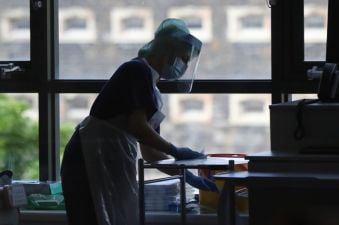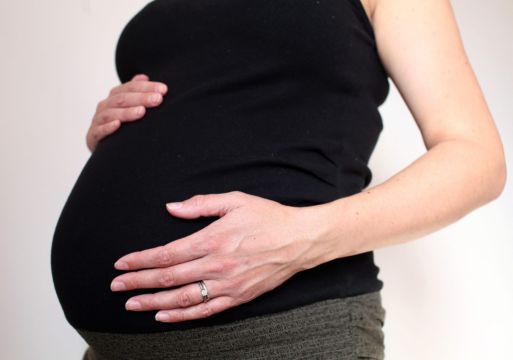Minimal international data linking Covid-19 to a risk of stillbirth is reassuring, according to health experts in Ireland.
The health workers were responding to an alert issued by the HSE on Thursday, after coroners identified coronavirus infection of the placenta as a factor in four recent stillbirths.
Obstetrician Keelin O’Donoghue said there could be small clusters of cases of stillbirths "by chance," but the data internationally was “very reassuring.”
She told RTÉ radio’s Morning Ireland that the majority of cases of Covid-19 during pregnancy in Ireland had very good outcomes, with most women experiencing only mild symptoms. There had been no maternal deaths as a result of Covid-19, she added.
The grief of the families who had experienced the stillbirths should be acknowledged, she said.
Unusual
Meanwhile, the head of the HSE’s Women and Infant’s health programme told Newstalk Breakfast that the information was “very much preliminary” and further evidence would be required.
Professor Peter McKenna said it seemed unusual that health authorities were only hearing of the issue at this stage, a year into a pandemic.
There had been thousands of births in Ireland in the past year and millions throughout the world. If there was a frequency of such incidents it would have come to light in other countries, he said.
However, Prof McKenna cautioned that pregnant women who notice decreased foetal movements should immediately contact their hospital.
Pregnant women should continue to avoid acquiring the virus by adhering to public health measures and if they had any concerns they should share them with their hospital where tests would be done, he said.
If the women detected decreased foetal movements it would be prudent to have tests carried out and have them repeated on an ongoing basis.
Vaccine priority list
Also on Friday morning, the Master of the Rotunda maternity hospital repeated a call for pregnant women to be moved up the vaccination priority list.
Professor Fergal Malone said he was “a strong advocate” for pregnant women to be vaccinated. “It’s the safe thing to do.”
Internationally, “thousands” of pregnant women had been vaccinated with no adverse effects, he said.
He told RTÉ radio’s Today with Claire Byrne show that “putting them at the end of the queue is not a good thing.”

Of the 200 cases in the Rotunda hospital of pregnant women with Covid-19 there had been no adverse baby outcomes, Prof Malone said.
The further into the pregnancy that a woman contracted Covid-19 the higher a chance of getting very sick, which made their care “a little bit trickier,” he explained.
Maternity hospitals were safe places and any woman who had concerns should contact their hospital “day or night”.
It was not surprising to find that there had been a number of stillbirth cases that may have been associated with Covid-19, he said, but the issue was whether the cases were as a result of causation or association. It would be difficult to conclude that Covid-19 in the placenta had caused the stillbirth.







